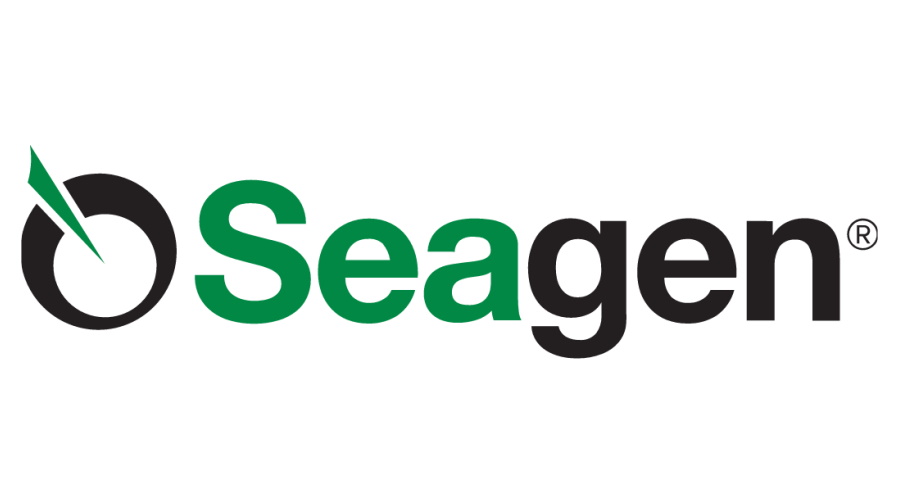HER2 heats up as Seagen licenses RemeGen ADC for $2.6bn

Seagen is a specialist in antibody-drug conjugates, but has looked to Chinese biotech RemeGen for a HER2-targeting candidate that could challenge rival drugs from AstraZeneca/Daiichi Sankyo and Roche.
The US company is paying $200 million upfront for rex-Asian rights to RemeGen's disitamab vedotin, with another $2.4 billion in possible future payments tied to future successes across multiple indications, including breast, bladder and gastric cancer.
Disitamab vedotin already has a conditional approval in China for HER2-positive gastric cancer, and has been filed for HER2-positive bladder cancer on the strength of a pair of phase 2 trials.
The FDA has given the drug a breakthrough designation in the latter indication, and Seagen is eyeing additional studies of the drug in a range of cancer types including tumours that express HER2 at high and low levels.
Seagen was a pioneer in the development of ADC drugs, and has successfully brought two to market – Adcetris (brentuximab vedotin) for various type of lymphoma and Padcev (enfortumab vedotin) for bladder cancer – so its decision to tap RemeGen's platform is an endorsement for the Chinese biotech.
The US company also sells a small-molecule HER2 inhibitor – Tukysa (tucatinib) – which is now partnered with Merck & Co outside the US, Canada and Europe as part of a $4.2 billion alliance signed between the companies last year.
The deal with RemeGen gives Seagen a closer rival to AZ and Daiichi Sankyo's Enhertu (trastuzumab deruxtecan) and Roche's Kadcyla (trastuzumab emtansine) – both HER2-targeting ADCs – but may raise questions about its confidence in Tukysa.
That said, RemeGen and Seagen are targeting gastric, bladder and low HER2 breast cancer first with disitamab vedotin, minimising direct clashes with Enhertu and Kadcyla in the near term at least.
Seagen said that the antibody in its ADC may be superior to trastuzumab, as it has a higher affinity for HER2 and gets into cells more effectively, although that will have to be put to the test in head-to-head clinical trials.
It also suggests that vedotin – the cytotoxic payload carried by the antibody – may have advantages when combined with checkpoint inhibitors in stimulating cell death.
https://twitter.com/SeagenGlobal/status/1424673944670453761
Last year, RemeGen raised an impressive $515 million in an initial public offering on the Hong Kong Stock Exchange, showing clear signs of investor enthusiasm for its platform.
While the licensing deal with Seagen tops up its finances, the scale well below the $6.9 billion bundle – including $1.3 billion upfront A- that Z laid down for Enhertu, although that drug was already in late-stage development when the deal was struck towards the end of 2019.
Now, Enhertu's approved as a third-line therapy for HER2-positive breast and gastric cancers, but will need to move into earlier lines of therapy to fulfil AZ's expectations for multibillion-dollar sales.
In the first half of the year the company earned just $89 million from its profit-sharing deal with Daiichi Sankyo, which recorded product sales of $120 million in the most recent quarter.
Enhertu tops Kadcyla
This week AZ and Daiichi took another step forward with the ADC, reporting results from a head-to-head clinical trial win against Roche's Kadcyla as a second-line treatment for HER2-positive breast cancer after initial treatment with Roche's Herceptin (trastuzumab) and taxane-based chemotherapy.
Kadcyla has been on the market for years, but some setbacks in clinical trials meant it failed to make the swift progress expected in earlier lines of breast cancer therapy. Recent studies – notably the KATHERINE study in the adjuvant or post-surgical setting – have however allowed it to gather momentum.
Sales last year grew by a third to $1.7 billion and the drug is predicted to top the $2 billion mark in 2021.
Enhertu outperformed Kadcyla at preventing tumour progression or death in the DESTINY-Breast03 trial, and while data on overall survival isn't mature yet, the results looks like they could help to move Enhertu into the second-line category.
AZ and Daiichi want to go further though, and earlier this year launched a phase 3 study in previously untreated patients – DESTINY-Breast09 – which is comparing Enhertu with or without Roche's Perjeta (pertuzumab) to Perjeta, Herceptin and taxane chemotherapy.
Analysts think Enhertu sales could move north of the $2 billion threshold quite quickly, and reach $4 to $5 billion at its peak, assuming it can make the move into earlier lines of therapy and low-HER2 cancers.












